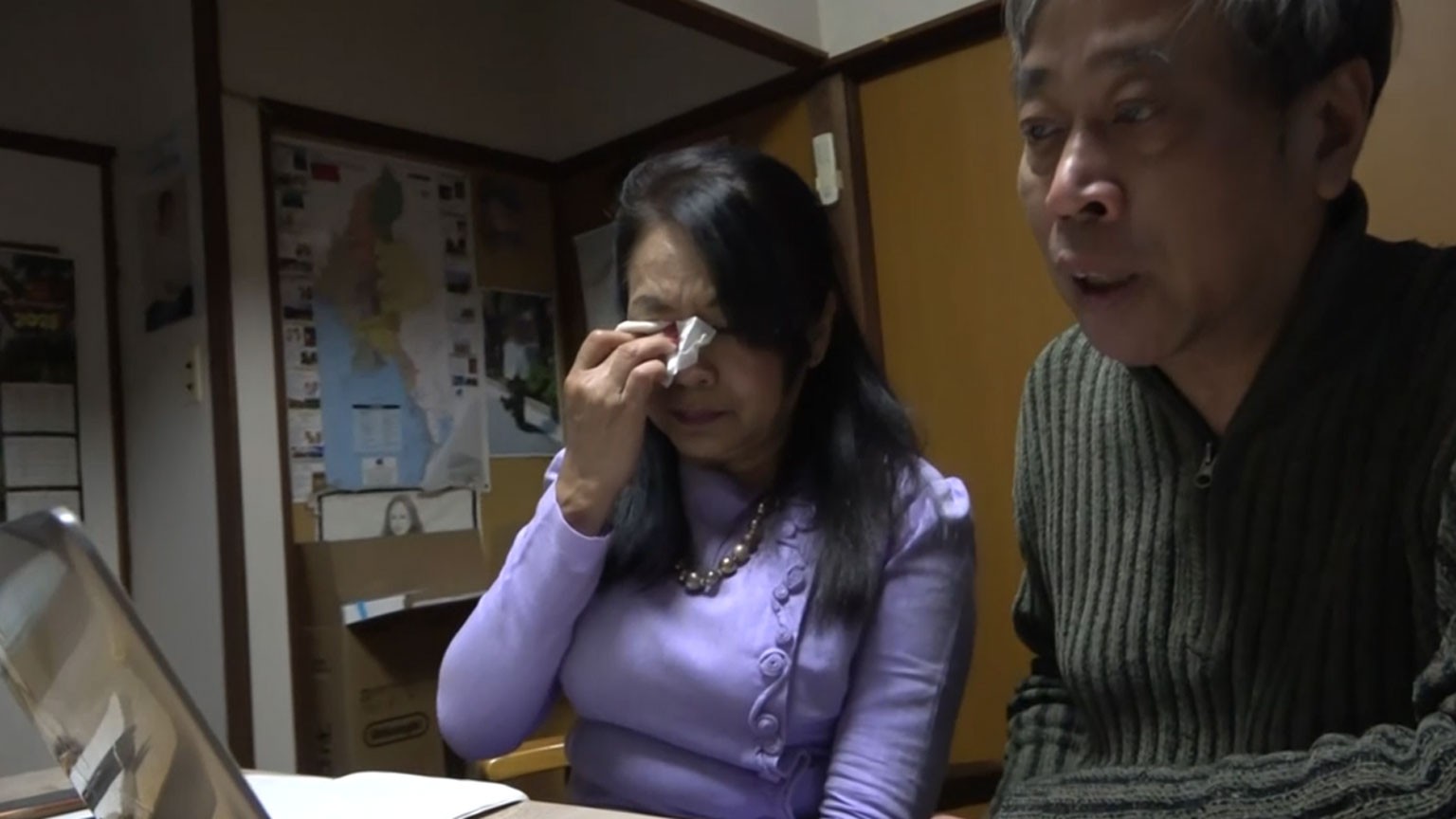The gains are significant: A local independent media outlet says resistance forces now control all the areas shown in red on the map below -- 46 towns in total as of February 15. But the junta has worked hard to control the flow of information out of the country, making it difficult to know for sure what is happening.
A Burmese couple living in Japan has been sharing photos and videos with NHK – all taken by people inside the country who are risking their lives to document the junta's human rights abuses.
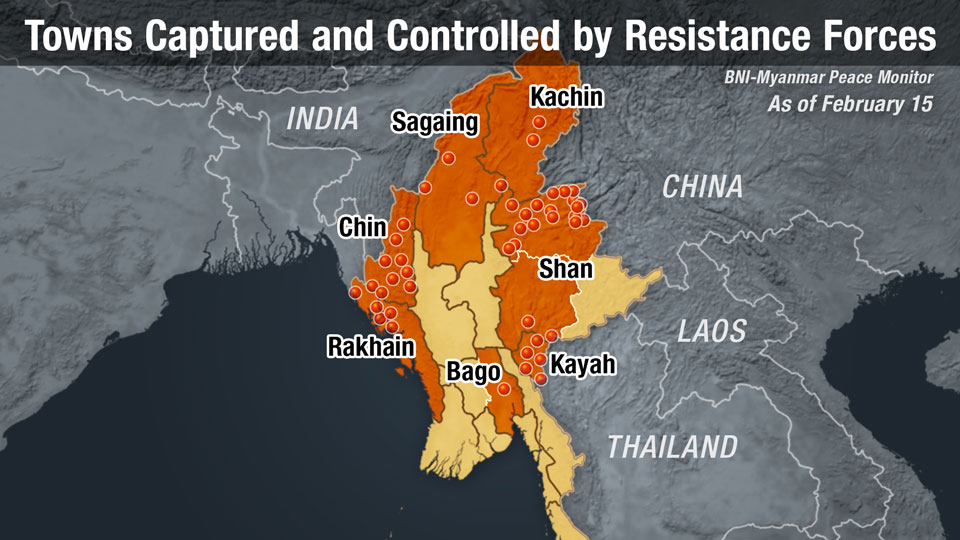
Source: BNI-Myanmar Peace Monitor
Humanitarian crisis worsens
Burmese couple, Win Kyaw and Mathida, have lived in Japan for more than 30 years. They fled Myanmar after the 1988 military crackdown on a student-led pro-democracy uprising. For three decades, the couple have supported displaced people in their homeland, sending money, food and other relief supplies.
Since the coup in February 2021, many civilians have been caught up in the conflict. Tragic images from their contacts in Myanmar show people fleeing the military. A UN agency estimates that since the start of Operation 1027, more than 600,000 people have been displaced. In total, the country had more than 2.6 million internally displaced people as of December 31, 2023.
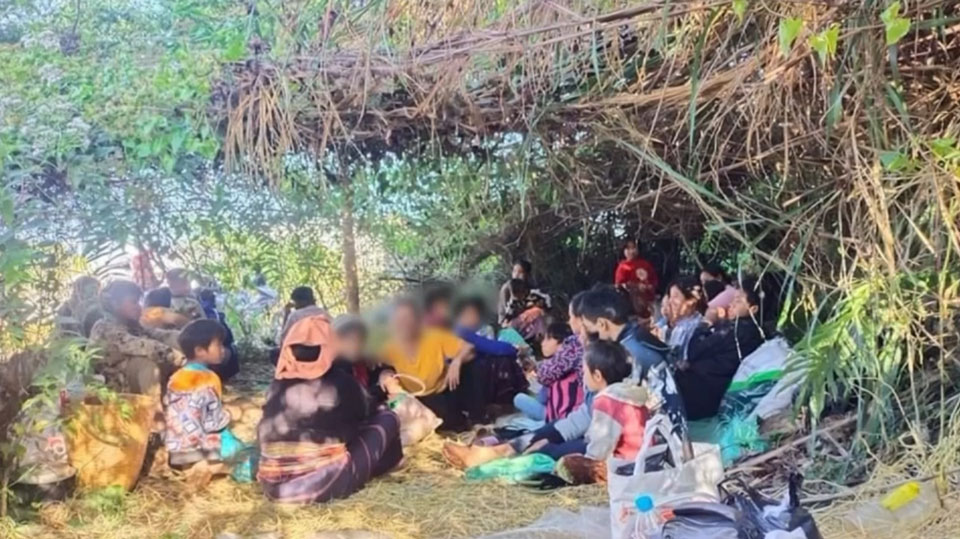
Until recently, the largest city Yangon appeared to have been spared much of the turmoil of civil war. No longer. One resident spoke of frequent power outages and said soaring inflation was making it hard to feed his family. He said the cost of eggs has doubled since the coup, while gasoline has risen sixfold. Unemployment is up, and so is crime.
"We civilians are scared to go out after 8 p.m.", he told the couple in Japan. "Reports say Yangon is safe, but it is not. The military has repeatedly granted convicts amnesty and released them from prison."
Living with guns, but a dream worth fighting for
The couple heard from a woman in her 30s who had moved from the city to join the resistance movement. She had been out of contact for two years. When they last spoke, she was selling shampoo. Now, she prepares meals and offers medical care in a rearguard unit of the allied ethnic groups.
"One day, I saw artillery fire and I had to stay in a bomb shelter all night. Many women do get close to the front lines to offer medical support and meals."

Win Kyaw and Mathida say they do not support taking up arms. But they also say they understand why young people are fighting to protect their country.
The militia woman took up arms after two teenage girls were killed during an anti-coup protest. "We women understand that it's now up to us to protect ourselves. That's why we have decided to fight together."
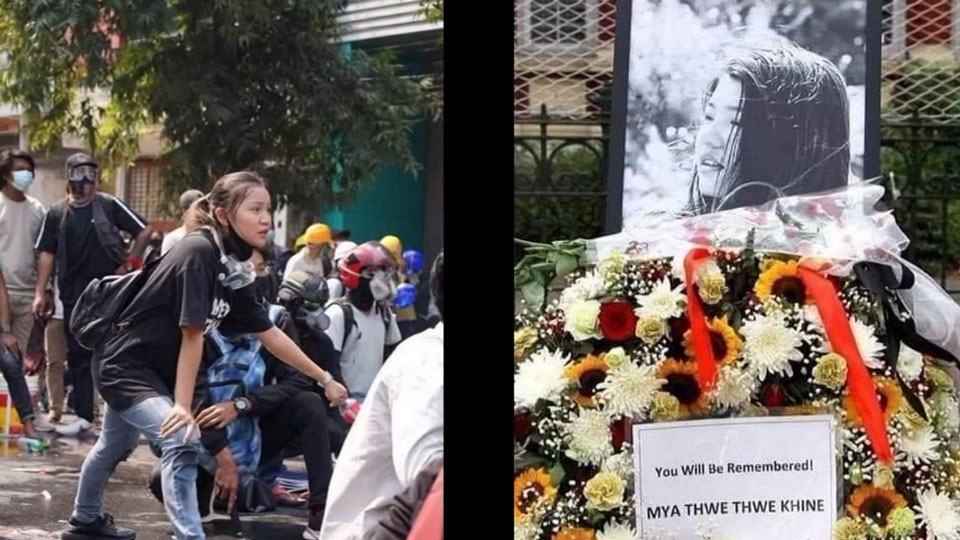
The militia member is from the Bamar majority ethnic group. She says she had never been to an ethnic minority area before, but now knows how such people were oppressed by the military for many years.
"It's so different from where we used to live. People here are really poor. That's what I notice most. They can't study, and there's no medical care. Once the fighting ends, I want to visit places like this and do my best to support these people."
Digital Resistance
Faced with a significant loss of territory on the battlefield, the military has responded by stepping up air attacks. The air raids – often targeting civilian areas – are reported to have killed hundreds of civilians over the past three years. The military denies noncombatants are dying, insisting that it is carrying out necessary operations against insurgents.
Win Kyaw and Mathida worry that the military's increasing reliance on air power will lead to even more carnage. In January, they received reports of airstrikes in the northwestern Sagaing region. The attack apparently killed at least 17 people, including children. The couple obtained some videos and photos by the locals as evidence. But the military immediately dismissed the reports as fakes. Human rights watchdog Myanmar Witness , which specializes in open-source investigations, say they have verified photos and videos circulating online that prove the Myanmar Air Force's involvement.

Based on information from the two, NHK has been working with Myanmar Witness to analyze aircraft and weapons used by the military. It has learned that the military has commissioned new aircraft since the coup, effectively tripling the original payload capacity of its fleet, with long-term support from China and Russia.

In December 2023, military leaders held a ceremony, the commander in chief, Min Aung Hlaing, announced "it is a new step to upgrade the Myanmar Air Force", highlighting 2 new Russian-made Su-30 jets. The Su-30 has a payload capacity of 8,000 kilograms, significantly greater than that of the Yak-130.
According to TASS, the Russian media outlet, the Kremlin has agreed to supply six Su-30 planes to Myanmar. Two Su-30s were unveiled in 2022. Their tail numbers are 1904 and 1905. Other tail numbers of the latest commissioned ones are 1906 and 1907.
Weaponry expert, Leone Hadavi, says this means the total order for the model could be seven.

The couple fears that if Su-30s are deployed in future airstrikes, the damage could be even greater. Win Kyaw says, "The country will never function well as long as it's controlled by the military. I hope we can all work together to show that war crimes are being committed there."
Education is the only solution
Win Kyaw and Mathida contacted the principal of a village school in Sagaing. Over the past two years, bombings and military raids have resulted in frequent burning of villages. The principal, a man in his 30s, says 30 of the 40 students in his class had lost their homes in the attacks.

But the principal reports the situation has started to improve. "The residents are all safe now, and since Operation 1027 started, it has become less violent around here. Now civilian forces are on the offensive, aiming to retake towns, so the military is focused on defending itself."
With resistance forces on the front foot, villages are enjoying more autonomy. Some are operating their own hospitals, schools and libraries. Students are playing soccer again – although still wary of possible attacks by the military.
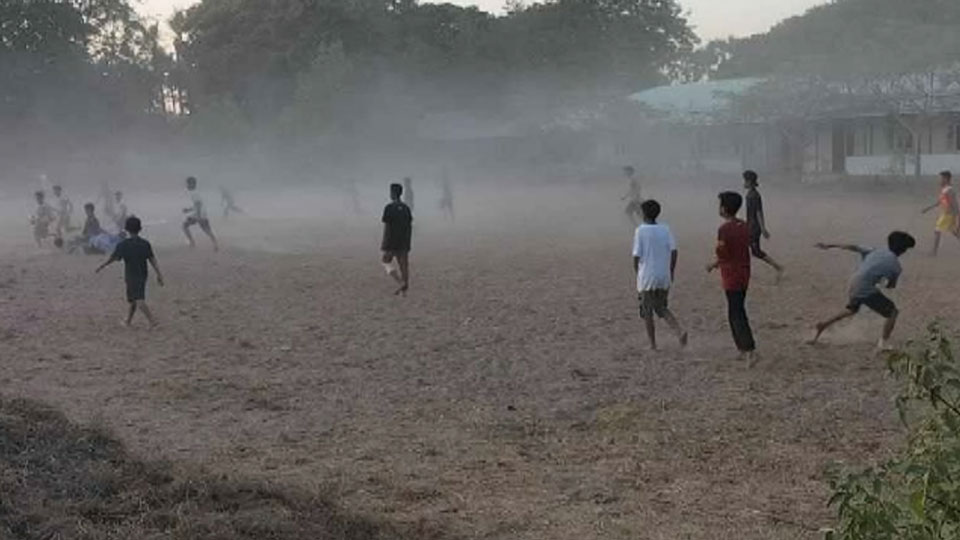
Residents say there are almost no men left in the village. Most leave to fight the military when they turn 18. Win Kyaw raised the issue with an 18-year-old female student.
Win Kyaw: "What do you think about people your age fighting?"
Female student: "I'm proud of them. They're fighting for us at the risk of their own lives, so I'm cheering for them."
Win Kyaw: "Some think that if they stopped fighting, there would be peace. What do you think?"
Female student: "I disagree. Myanmar was a wonderful country before the coup, and when the junta took over, things started deteriorating. Our generation wants to put an end to this dictatorship, so we cheer on the young people who are taking up arms against the military."
The principal says seeing the children playing soccer again moved him to tears. But he also says he encourages the children to study hard. "Since our education is inferior, our country has broken down, and because our country has broken down, our education is inferior. That is the vicious cycle our children live in."
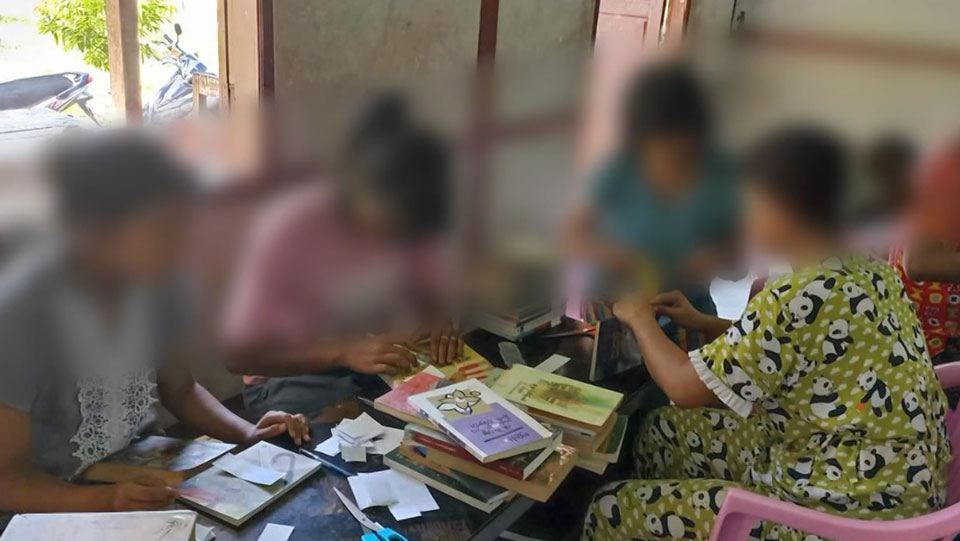
They say the sooner the fighting ends, the sooner they can turn their attention to rebuilding their country.
"We must help the children study and grow," says Win Kyaw. "That's how we build a country. It could take 30 years, but if they can't study, it could take more than 100."
Mathida adds, "If you get the right education, you can walk on the right path. That's what we believe. That's why we help them."
